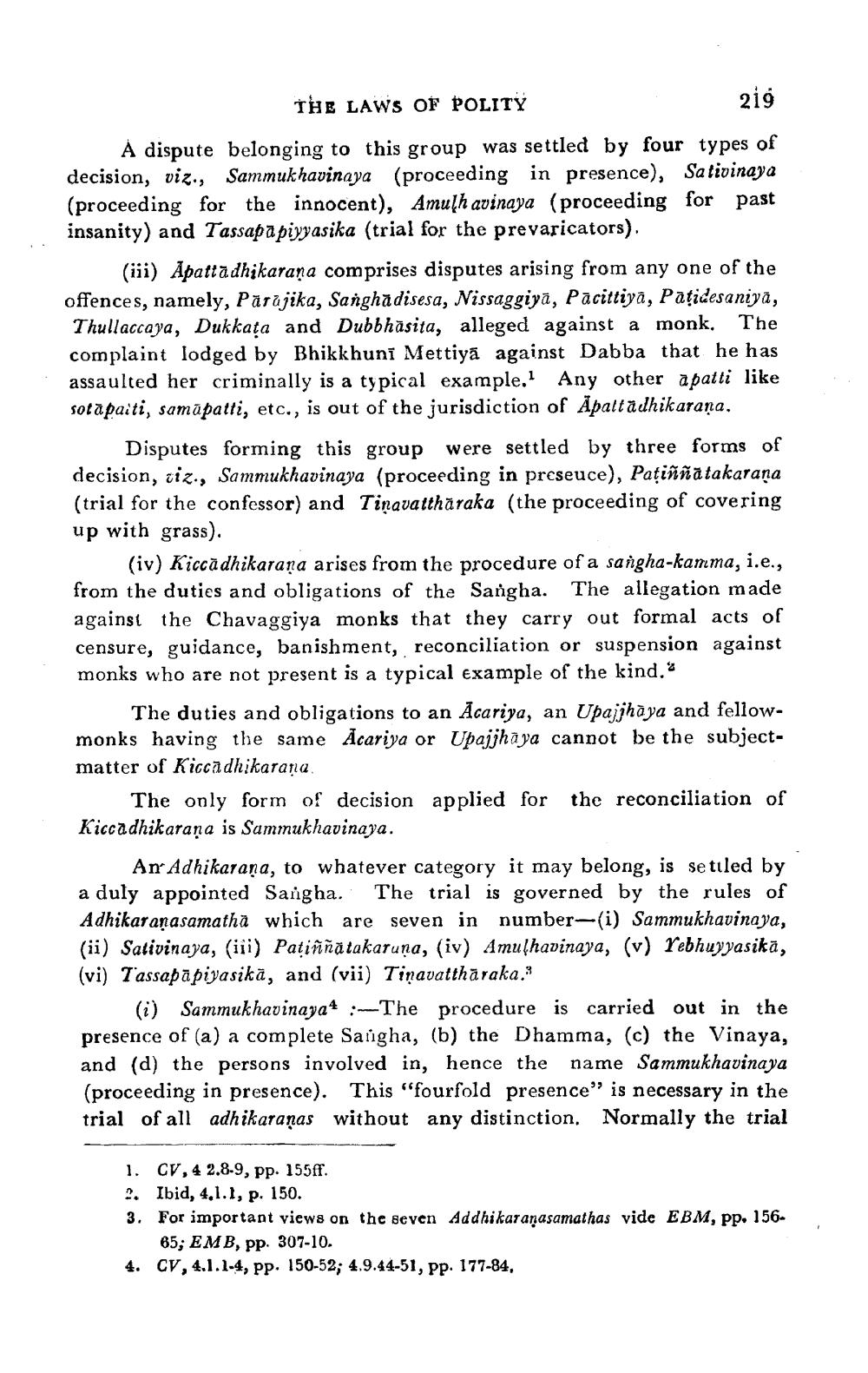________________
THE LAWS OF POLITY
2ig A dispute belonging to this group was settled by four types of decision, viz., Sammukhavinaya (proceeding in presence), Sativinaya (proceeding for the innocent), Amush avinaya (proceeding for past insanity) and Tassapapiyyasika (trial for the prevaricators).
(iii) Apatta dhikaraña comprises disputes arising from any one of the offences, namely, Päräjika, Sangha disesa, Nissaggiyā, Pacittiya, Patidesaniya,
Thullaccaya, Dukkata and Dubbhäsita, alleged against a monk. The complaint lodged by Bhikkhuni Mettiyā against Dabba that he has assaulted her criminally is a typical example. Any other apatti like sotapaiti, samāpatti, etc., is out of the jurisdiction of Apalt adhikaraņa.
Disputes forming this group were settled by three forms of decision, giz., Sammukhavinaya (proceeding in preseuce), Patiññā takarana (trial for the confessor) and Tinavatthāraka (the proceeding of covering up with grass).
(iv) Kiccădhikaraņa arises from the procedure of a sangha-kamma, i.e., from the duties and obligations of the Sangha. The allegation made against the Chavaggiya monks that they carry out formal acts of censure, guidance, banishment, reconciliation or suspension against monks who are not present is a typical example of the kind.
The duties and obligations to an Acariya, an Upajjhāya and fellowmonks having the same Acariya or Upajjhaya cannot be the subjectmatter of Kiccadhikarana.
The only form of decision applied for the reconciliation of Kiccadhikaraṇa is Sammukhavinaya.
Arr Adhikarana, to whatever category it may belong, is settled by a duly appointed Sangha. The trial is governed by the rules of Adhikaranasamatha which are seven in number-(i) Sammukhavinaya, (ii) Sativinaya, (iii) Patiññä takaruna, (iv) Amushavinaya, (v) Yebhuyyasikā, (vi) Tassapapiyasikā, and (vii) Tinavattharaka."
(i) Sammukhavinayat :--The procedure is carried out in the presence of (a) a complete Sangha, (b) the Dhamma, (c) the Vinaya, and (d) the persons involved in, hence the name Sammukhavinaya (proceeding in presence). This "fourfold presence” is necessary in the trial of all adhikaranas without any distinction. Normally the trial
1. CV, 4 2.8-9, pp. 155ff. 2. Ibid, 4.1.1, p. 150. 3. For important views on the seven Addhikaranasamathas vide EBM, pp. 156
65; EMB, pp. 307-10. 4. CV, 4.1.1-4, pp. 150-52; 4.9.44-51, pp. 177-84,




